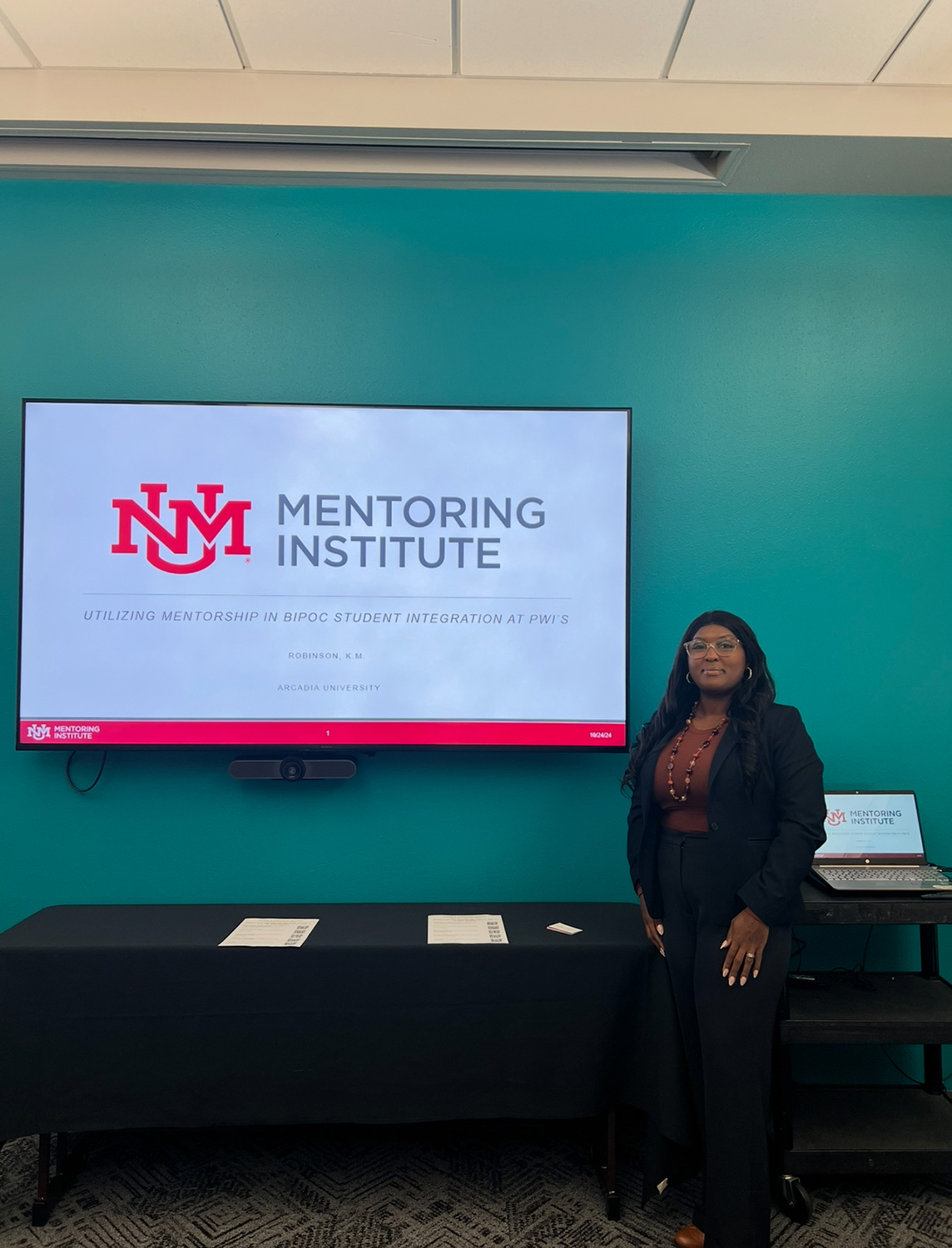Dr. Robinson Publishes Research on Mentorship Framework for BIPOC Students

Dr. Keisha M. Robinson, director of Arcadia University’s Social Action and Justice Education (SAJE) Fellowship Program, has published research on mentorship models aimed at increasing retention and academic success for Black, Indigenous, People of Color (BIPOC) students at predominantly white institutions (PWIs).
Her study, titled “Utilizing Mentorship in BIPOC Student Integration at PWIs”, was published in The Chronicle of Mentoring and Coaching. It examines the experiences of mentors in a fellowship program and the impact it may have on the retention of BIPOC students at a PWI within the field of education.. It identifies nine key themes that impact mentorship: academics, communication, community involvement, cultural diversity, desire for change, emotions, support and training, social connection, and university experience.
Through this research, Dr. Robinson developed the Robinson Mentorship Framework, which emphasizes training and support systems, cultural competence, and relationship building.
“It was important to realize that student integration was a huge part of academic success,” explained Robinson. “That meant having training and support for the mentors in a program. So when we’re talking about peer-to-peer mentorship, it’s important to offer the mentors training and support to provide for the incoming fellow.”
Her work has reshaped the SAJE program at Arcadia, where fellows recorded a 92% retention rate and an average GPA of 3.5 last year, with first-year fellows averaging 3.9.
“A lot of it stemmed from the training component,” Robinson said. “We also had the social events, we had the SAJE course there to help build community, all those things together help them feel a lot more welcome and supported.”
Robinson hopes the framework can be implemented in other departments around campus to help all students transition to college life.
“It can be very difficult if you’re coming from a rural area. Arcadia is a small university, but it’s very different from a rural area. If you’re coming from a city, it can be very different too,” she explained. “So not just basing it on your race, but also where you’re coming from.”
Looking ahead, Robinson plans to expand her research to explore the intersection of education and the criminal justice system, including the potential role of mentorship in disrupting the school-to-prison pipeline.

